
There has been much debate within the church over Romans chapter seven. Is Paul describing the Christian life? Or is Paul describing an unconverted legal experience? Is Romans seven the greatest experience that a Christian could ever hope for in this life? Or is Romans seven a legal experience that a person must look to Jesus for deliverance from?
Calvinists have argued that if Paul did not have any better experience than this, no Christian could hope to attain a better experience. Thus this chapter is often used as a proof-text against the doctrine of holiness or deliverance from sinning in this present life. This chapter is used to defend the doctrine of perpetual sinning until death.
While these questions have been debated by Calvinists and Arminians, it is important to look beyond these debates to see the origin of these doctrines. What did the Early Church Fathers believe? And if they were in agreement on this issue, who was first to deviate from it?
Moses Stuart said:
“It will be admitted by those who are conversant with the dispute about the meaning of the passage before us, and are well read in the history of Christian doctrine, that Augustine was the first who suggested the idea, tat it must be applied to Christian experience. This he did, however, in the heat of dispute with Pelagius. At an earlier period of his life, he held to the common exegesis o the church, as is certain from Prop. XLV. in Epist. ad Rom.; Intelligitur hinc ille homo describi, qui nondum sub gratia. So in Confess. VII. 21, VIII. 5, Ad Simplic. 1. But Pelagius, who denied the fallen state of man, urged upon him the declaration above referred to, vis., delighting in the law of God after the inner man, serving the law of God with the mind, &c. Augustine felt himself pressed by them, and made his escape by protesting against the exegesis of his antagonist. He recanted his former opinion respecting verses 14-25, and became a strenuous adcovate for an interpretation which through him has gained an extensive ground among Christians, and maintains its footing among many down to the present hour…The most ancient Fathers of the Church, without a dissenting voice, so far as we have any means of ascertaining their views, were united in the belief, that an unregenerate, unsanctified person is described in vii. 5-25. So Origen, Tertullian, Chrysostom, and Theodoret… The exegesis of Augustine, however, found favour in the churches where his sentiments respecting original sin were received; and prevailed very extensively and for a long time. In like manner with him, have Anselm, Thomas Aquinas, Cornelius a Lapide, Luther, Melancthon, Calvin, Beza, Spener, Buddaeus, Koppe, and many others explained the passage in question; and most commentators among evangelical Christians in Great Britain and in this country, have followed the same opinion. On the other hand, besides al the ancient Greek, and some of the Latin Fathers, there are many distinguished men who have defended the sentiments which has been above exhibited. Such are Erasmus, Raphel, Episcopius, Limborch, Turretin, Le Clerc, Heumann, Bucer, Schomer, Franke G. Arnold, Bengel, Reinhard, Storr, Flatt, Knapp, Tholuck, and 9so far as I know, all the evangelical commentators of the present time on the continent of Europe. Most of the English episcopal church, also, for many years, and not a few of the Scotch, Dutch, and English presbyterian and congregational divines, have adopted the same interpretation.” A Commentary to the Epistle to Romans, published 1845, p. 616-618
Prof. Tholock said:
“The more ancient teachers of the Church had unanimously explained it of the man who has not yet become a Christian, nor is upheld in the struggle by the Spirit of Christ.”Exposition of St. Paul’s Epistle to the Romans, published 1844, p. 211
John Fletcher said:
“What I say of St. Augustine may be said of the Rev. Mr. Whitefield. Before he had embraced St. Augustine’s mistakes, which are known among us by the name of “Calvinism,” he believed, as well as that father, that the disconsolate man who groans, Who shall deliver me? is not a possessor but a seeker of Christian liberty.”The Works of the Reverend John Fletcher, Vol. II, published 1833, p. 550
Joseph Agar Beet said:
“Does Romans 7:14-25 describe a justified man, or one still unforgiven? The latter view was held by Origen, the earliest Christian commentator, and by the Greek fathers generally: the former, by Augustine and the Latin fathers generally. It was received in the West during the middle ages, and by the Reformers; and has been held in our day by most who have accepted Calvin’s teaching on predestination. Among those who reject this teaching, the view of the Greek fathers prevails. It is worthy of note that this is the earlier opinion, and was accepted by nearly all who spoke as their mother-tongue the language in which this epistle was written.” St. Paul’s Epistle to the Romans
D. D. Whedon said:
“It has for ages been debated whether 13-25 described the case of an unregenerate or regenerate man. For the first three centuries the entire Christian Church with one accord applied it solely to the unregenerate man. It seemed to low a moral picture for a professor of a new Christian life, as the apostle in the main current of thought is describing. Its application to the regenerate man was first invented by Augustine, who was followed by many eminent doctors of the Middle Ages. After the reformation the interpretation by Augustine was largely adopted, especially by the followers of Calvin.”Whedon’s Commentary on the New Testament, Vol. III, published 1871, p. 335
Meyer said:
“Augustine in his earlier days acknowledged in harmony with the Greek fathers since Irenaeus that the language here is that of the unregenerate man.” Critical and Exegetical Handbook to the Epistle to the Romans, published 1874, p. 2
Asa Mahan said:
“We have said that, up to the later years of the life of Augustine, the entire Primitive Church — Augustine included –attached one fixed and exclusive meaning to this passage, namely, that the apostle here, in fact and form, describes a Legal, in opposition to a Faith, Experience described in the subsequent chapter, and in other parts of this epistle…We must bear in mind that it was in a heated controversy with Pelagius, that Augustine conceived and avowed this new and before unheard-of exposition. The latter rightly affirmed, and the former erroneously denied, the total depravity of the natural man. In his argument, Pelagius referred to the passage under consideration, saying that this was a palpable case, in which, by the universal assent of the Church, the state and character of the unregenerate man is described. He then asked, if approving the right, and hating the wrong, and “delighting in the law of God,” did not imply that there was something good even in such a man? Augustine could not deny the fact, the case being so palpable, of the universal agreement of the Church in the deduction that it was the unregenerate man referred to in the passage; nor did he perceive how, admitting the correctness of the universally received exposition, he could meet the argument of his opponent. Under such perplexity Augustine denied the validity of his own and the universal, and adopted the few and before unheardof, exposition, a most needless resort, and a most calamitous one for the spiritual good of the Church. The fact that the sinner continues “carnal, sold under sin,’ ‘notwithstanding his conscience approves the right, reprobates the wrong, and even “delights in the law of God,” presents the strongest possible proof of the intensity and totality of the natural sinfulness of man. We are fully and undeniably justified, therefore, in claiming for what we have designated as the “Primitive” exposition of the passage, the universal assent of the Church prior to the later years of Augustine. ” Misunderstood Texts of Scripture Expounded and Explained, The Doctrine of the Higher Life Thereby Verified
John Morgan said:
“To ourselves it seems amazing that any man can resist the force of argument with which Prof. Stuart has assailed the modern view, and sustained that, which, before, Augustine, was, for aught history informs us, the universal view of the church. We feel, we confess, an intense interest in the establishment of the true interpretation of this important passage; for we believe that the current false view had done more to hinder the saints and to flatter the hopes of hypocrites than any other single error that has ever prevailed among good men.” The Holiness Acceptable to God
Daniel Steele:
“The best scholarship discredits this chapter as the photograph of a regenerated man. The Greek Fathers, during the first three hundred years of church history, unanimously interpreted this scripture as describing a thoughtful moralist endeavoring without the grace of God to realize his highest ideal of moral purity. Augustine at first followed this interpretation, till in his collision with Pelagius.” Half Hours with St. Paul
Charles Finney said:
“It has been supposed to describe the situation and exercises of a Christian, and designed to exhibit the Christian warfare with indwelling sin. It is to be observed, however, that this is, comparatively, a modern opinion. No writer is known to have held this view of the chapter, for centuries after it was written. According to Professor Stuart, who has examined the subject more thoroughly than any other man in this country, Augustine was the first writer that exhibited this interpretation, and he resorted to it in his controversy with Pelagius.” Lectures to Professing Christians, Lecture VII, Legal Experience, 1837
This is what I wrote in my book, “The Natural Ability of Man: A Study on Free Will & Human Nature:
Romans chapter seven gives us a description of what occurs when the mind of an unconverted sinner is convicted by the law. Using a literary technique, Paul uses the present tense to tell the narrative. As many stories begin with “once upon a time,” Paul said, “For I was alive without the law once, but when the commandment came, sin revived, and I died” (Rom. 7:9). He then proceeded in his narrative to discuss what happens when an unconverted sinner encounters the law of God.
Some suppose Romans chapter seven to be a description of the Christian life, as opposed to a description of an unconverted state. But we know Paul is not referring to his own converted state because he already said that Christians have been made “free from sin” (Rom. 6:18, 22). The man in Romans seven was not “free from sin” and, therefore, he was not a Christian.
Paul also said that, “There is now no condemnation to them which are in Christ Jesus, who walk not after the flesh, but after the Spirit” (Rom. 8:1). Yet the man in Romans chapter seven was under condemnation and therefore needed to be saved by Jesus (Rom. 7:24-25).
And Paul said that, “to be carnally minded is death” (Rom. 8:6). But the man in Romans chapter seven said, “I am carnal, sold under sin” (Rom. 7:14). Therefore, the man in Romans chapter seven did not have eternal life.
And finally, Paul said that as a converted man he lived with a good and pure conscience that was void of offense (Acts 23:1; Acts 24:16; 2 Tim. 1:3). The man described in Romans chapter seven is deeply disturbed by his conscience (Rom. 7:16). Therefore, the description given in Romans chapter seven was not of the converted life of the Apostle Paul. It is a narration describing what happens when an unconverted sinner’s mind encounters the law of God and is convicted by it.
In this chapter we can see that even an unconverted transgressor can say, “I consent unto the law that it is good” (Rom. 7:16). This is because of the law of his mind (Rom. 7:23). A sinner can say, “I delight in the law of God after the inward man” (Rom. 7:22). This is a classic way of referring to our God given conscience. The conscience of a sinner consents unto the goodness of the law and even delights in it. It is natural and normal for a man’s conscience to do this.
The Natural Ability of Man: A Study on Free Will & Human Nature. To Order: Click Here
________________________________
Britt Williams said:
“With his intellect this man agrees with the law but was still captive to sin. Many think that because they are remorseful over sin that they are born-again. The most depraved people will praise virtue and justice in the abstract (Isaiah 58 “Take delight in approaching unto God”). Herod heard John the Baptist with delight. We must never confuse noble desires with noble character. There is a great difference in admiring and possessing. Here we have a man convinced by the law but not yet changed by the gospel. He said he was brought into captivity. This man was a captive to sin not just falling here and there.” A Study on Romans 7, part 2.
Jed Smock said:
“Perhaps Paul’s strongest statement concerning entire freedom from sin is 1 Thessalonians 2: 10: Ye are witnesses, and God also, how holily, and justly, and unblameably, we behaved ourselves among you that believe. The inspired Apostle appeals both to God and men to substantiate his testimony of deliverance. This is no sinner such as we have found in Romans 7, crying out for deliverance. Paul’s statement to the Thessalonians should be one any Christian could make among his companions. Why would a man prefer to identify with the testimony of Romans 7, unless he wants an excuse to sin?” Walking in the Spirit, A Liberating Commentary on Romans 6, 7, and 8.
Charles Finney said:
“Those who find their own experience written in the 7th chapter of Romans, are not converted persons. If that is their habitual character, they are not regenerated; they are under conviction, but not Christians.” Lectures to Professing Christians, Lecture VII, Legal Experience, 1837
What seems to cause much confusion is Paul’s use of the present tense in Romans 7. This fact is presented as the “nail in the coffin” that Paul was describing his present life as a converted Christian. But as we saw, this would contradict Paul’s statements about his Christian life elsewhere. Therefore, such an interpretation of Romans 7 cannot be a proper exegesis. What then is the meaning behind the present tense?
It is not uncommon for a person who is telling a narrative to tell the story in the present tense. Athletes may take the present tense when telling their stories of the sport. “There I am, at the end of the last quarter. The ball is thrown to me and everyone in the stadium is looking at me…” Present tense is used as a communication technique to describe a past event.
So also Paul uses this literary technique to tell the narrative of the legal experience of the unregenerate. This is not uncommon for the Scriptures. Take for example how the scriptures say, “Jesus saith” 43 times. “Jesus saith” is in the present tense, but of course the writers of the gospel were describing a past experience. The present tense is used simply to help communicate the narrative.
This is an example, “And saying, Lord, my servant lieth at home sick of the palsy, grieviously tormented. And Jesus saith unto him, I will come and heal him.” Matt. 8:6-7. The gospel of Matthew was written, of course, after the stories described in it. But here Matthew, the narrator of this past event, takes the present tense to communicate the dialog Jesus had with this man. “And saying” is “καὶ λέγων” and is present tense. “And Jesus saith unto him” is “καὶ λέγει αὐτῷ ὁ Ἰησοῦς” and saith is also present tense.
Bible Dictionary said:
“Some phrases which might be rendered as past tense in English will often occur in the present tense in Greek. These are termed “historical presents,” and such occurrences dramatize the event described as if the reader were there watching the event occur. Some English translations render such historical presents in the English past tense, while others permit the tense to remain in the present.”
Another example of this is Matthew 7:22-23. “On that day many will say to me, ‘Lord, Lord, did we not prophesy in your name, and cast out demons in your name, and do many mighty works in your name?’ And then will I declare to them, ‘I never knew you; depart from me, you workers of lawlessness.’” You’ll notice that to tell the narrative, Jesus speaks in the present tense as if this future event were presently occurring.
We can see then how the writers of the scriptures often use this literary technique of using the present tense to describe the narrative of a past event, and therefore Paul’s use of the present tense in his narrative of what happens when a sinful man is convicted by the law of God is not by any means proof conclusive that Paul was describing his own Christian experience.
Harold E. Will said:
“It is at this verse that it seems proper to decide whether Paul speaks particularly of himself or personifies another character; and, if he speaks of himself, whether he describes a battle in a regenerate or unregenerate condition, or both alternatively. The use of the aorist tense in verses 7-13 naturally indicates that the state is gone by, before regeneration. Yet, verses 14-24, Paul makes use of the present and returns only to the aorist in ch. 8:2; but this seems to be o little consequence since it is the author’s way of employing it for emphasis in presenting his subject. Amongst the church fathers, Origen, Chrysostom, Thodoret, et al., accept the ‘unregenerate view,’ while a few others hold the opposite view.” Will’s Commentary on the New Testament, Vol. VI, p. 135


Objections to Calvinism As It Is by Randolph S. Foster is a classic rebuttal to the doctrines of “Reformed Theology” from the 1800’s. The false theology of Calvinism is refuted by the authors scriptural and rational arguments, plainly exposing the so-called “Doctrines of Grace” for what they really are. Some Christians have called this work the best book on Calvinism out there. The authors use of logic, scripture, and sarcasm makes this book a blessing to read!


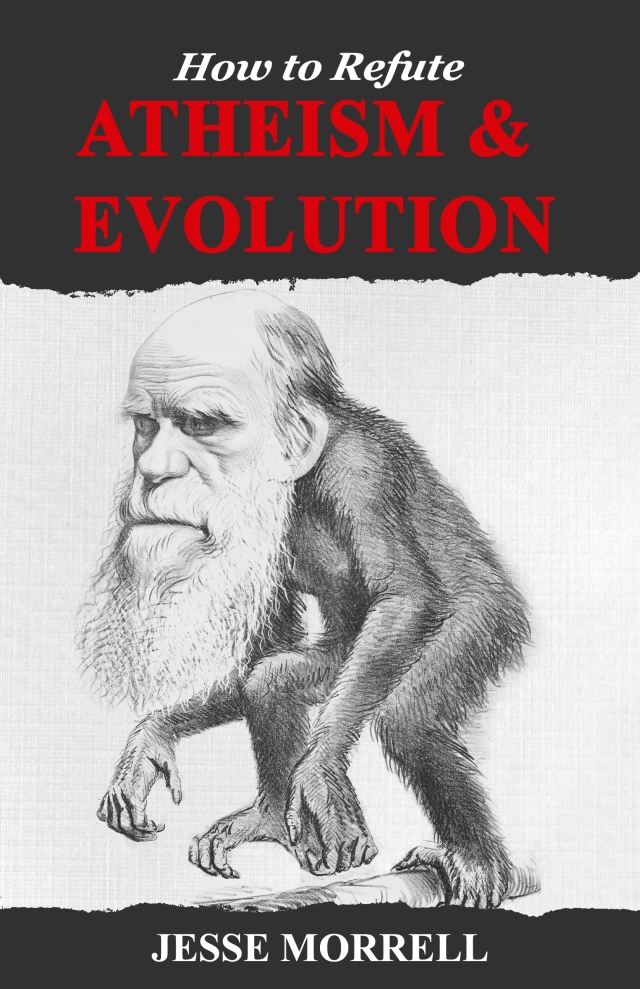

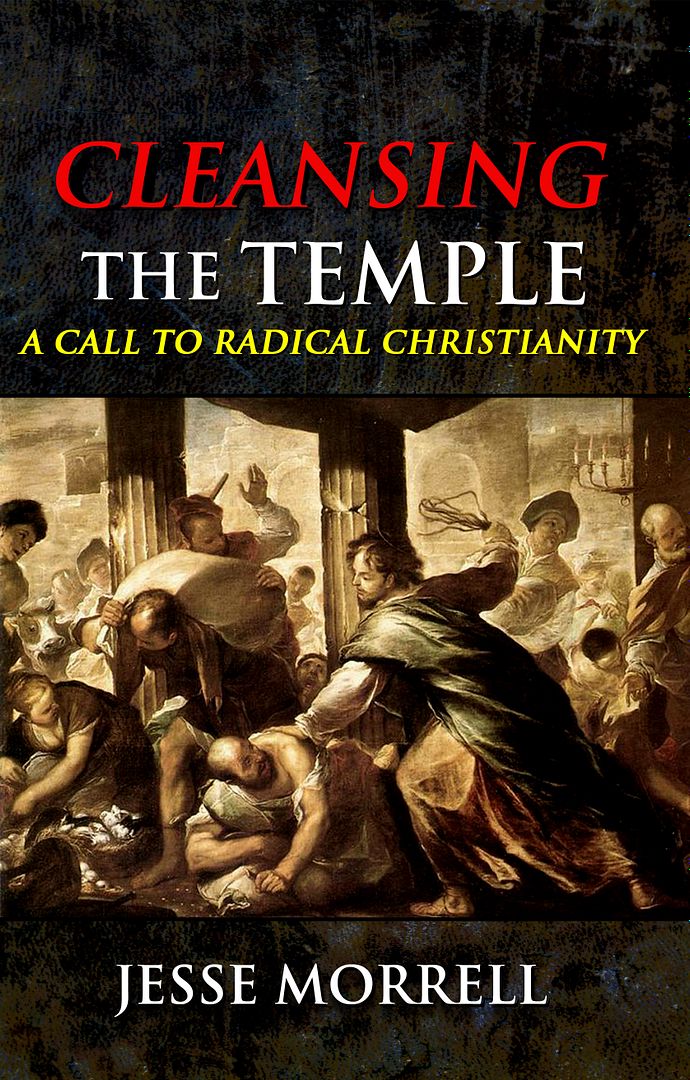
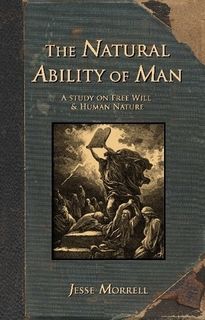
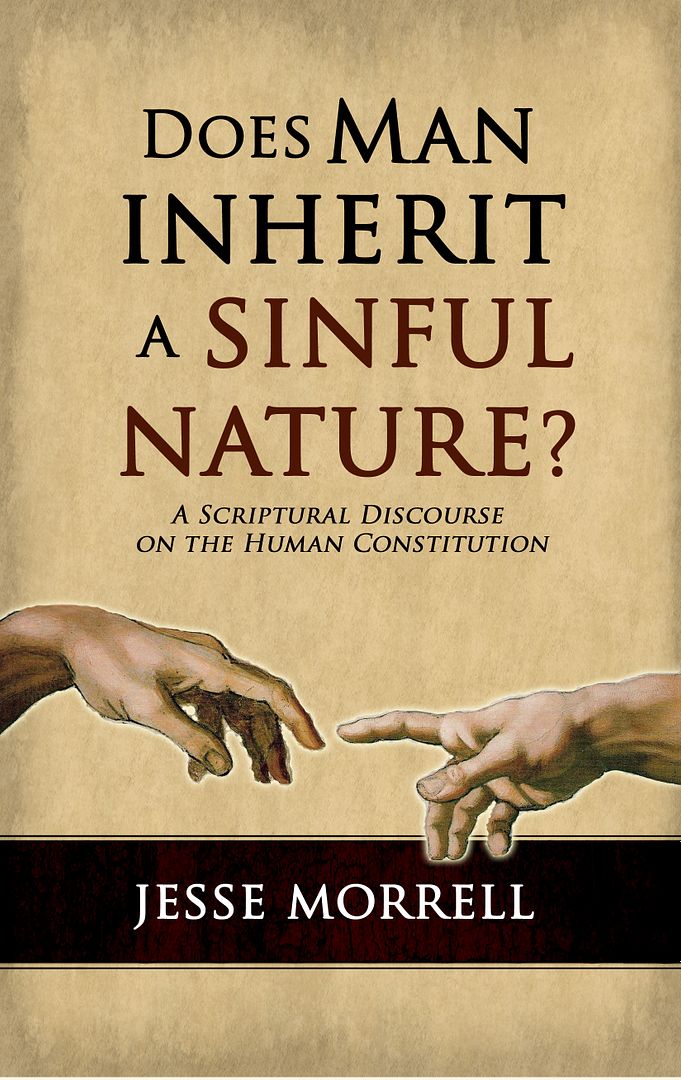

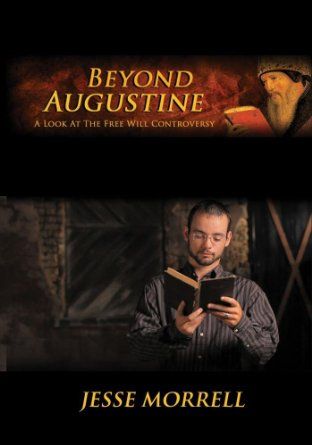









WRETCHEDNESS – Not a Fruit of the Spirit
The man described in Romans 7 cannot be a Christian, for many reasons, but one of which is that he is wretched. Wretched means miserable. He is guilty and convicted of his sin and is therefore miserable – wretched. He has no joy, which is a fruit of the Spirit. The Christian has repented knows his sin is forgiven, walking in obedience He has peace with God. He is not wretched or miserable. Wretchedness is not a fruit of the Spirit.
Just a simple question is Romans 7 your experience as an unregenerated person? Were you ever trying to obey God and getting frustrated? It wasn’t my experience, I was running after sin, because of the law of sin and death in my members. Wretched also means to be exhausted. I believe you can take is as a Jew trying to keep the law pre-conversion and a born again believer who doesn’t understand how sinful and carnal his flesh is. There is a law of sin and death in my members, which can’t be put to death by my own willpower or strength, but only through the Lord Jesus by the a new law, the law of the Spirit of life in Christ Jesus (Romans 8:2). That law is greater than the law of sin and death. That’s why now we are called to reckon ourselves died to sin (Romans 6:11).
Romans 7 describes Paul’s experience as a Pharisee convicted by the law. They know to do right but keep doing wrong. It was my experience, not as a careless sinner, but as a convicted sinner. I was careless in my sin and sinned with ease until I heard a hell fire preacher and realized I was going to hell. I was deeply convicted and wanted to change but didn’t know how. I roasted in that conviction for months, Sinning in misery now (wretched), until I found deliverance through Christ. Then there was no condemnation.
So yes Romans 7-8 does describe my experience of going from careless – convicted – converted very well. You can see each of those phases.
I agree with what you are saying, because I had a similar experience, I was addicted to pornography and actually tried to stop it, but couldn’t in my own strength. It wasn’t until my old man died with Christ that I could get victory. Why couldn’t Paul get victory in Romans 7? I was just making the point that some Christians don’t understand (me included) how to walk in the Spirit. It’s only by faith through grace not by my own strength in willing my way to victory. The law of sin and death is still in our members and can only be put to death by the Spirit not the strength of the flesh.
Yeah I was a drug addict and a criminal and that is what I knew. When I realized I was going to hell, I wanted to change but didn’t know how. To Will was present with me but how to perform I found not. And I had to war with the law of sin in my flesh – the sinful habits from drugs and alcohol. The pull of the flesh becomes stronger with every indulgence
By the way, I don’t believe Romans 7 should be the life of a Christian rather Romans 8. Hope my post conveyed that. We are set free from sin!
We need more preaching on sanctification in the church and perfecting holiness in the fear of the Lord. So much false doctrine about we are eternally secure no matter how we live and no fear of the Lord in keeping our robes white. Calvinist need to do a lot of repenting for their false doctrines that invaded the church. Why all the warnings throughout the NT to believers?